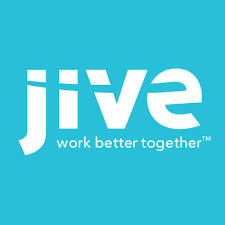 When I started IDC’s social software research practice in 2007, the entire market was about $50 million and Jive was one of 10 or more vendors. Needless to say, the market has come a long way in the last ten years, along with lots of twists and turns.
When I started IDC’s social software research practice in 2007, the entire market was about $50 million and Jive was one of 10 or more vendors. Needless to say, the market has come a long way in the last ten years, along with lots of twists and turns.
Throughout it all, Jive has taken a leadership role in building a robust platform that could stand up to the requirements of big enterprise clients and address the needs of building communities with both employees and customers. Jive also led the way in selling communities as a business solution, not a technical solution. It was a big vision that worked well in their early market, led by customers who shared their exciting vision.
As the market grew, the big players made their bets and Jive remained independent. Software giants and start-ups entered the fray. Point solutions added social capabilities. Today, the vendor market is quite complex – with a huge variety of approaches customers can take. While that means there is more money to be spent, it is a lot less clear on where to make big bets. That confusion favors big vendors like Microsoft, Salesforce, Oracle and SAP with established IT relationships.
The customers for social software are also increasingly diverse and fragmented in their expectations about what social software will do – even within one organization. Mainstream buyers are often driven less by strategic vision for organizational transformation and more by the more tactical need to upgrade existing collaboration tools. The two needs require very different levels of platform sophistication.
For the strategic buyer, communities are being integrated into the employee and customer experience – requiring complex integrations for platforms. While even the biggest players have not successfully completed these integrations, they have an easy to understand path to do so and can bundle pricing in attractive ways.
With all those pressures, Jive needed to find a home within a broader solution. With the ESW Capital acquisition, Jive will be added to its Aurea solution, a portfolio of technology focused on customer experience. This may be a good match for those of Jive’s customers using it to enable their customer communities but it’s not clear yet where it leaves those of Jive’s customers using Jive to enhance employee collaboration and innovation. Taking the company private may also allow Jive the time and space to focus on customer needs without the pressures of the open market. Time will tell.
Our advice to Jive customers:
- Pay attention and reach out. Listen carefully to what Jive and other customers are saying but don’t leap to conclusions. Most of the details of this deal are yet to be announced.
- Take this opportunity, while you have stakeholder attention, to reaffirm your program strategy and goals, independent of your software platform. You will need that to guide decisions moving forward – whatever those decisions are.
- Work with IT to develop a standing platform requirements document that can be used at any point to evaluate options and educate stakeholder.
- Use this as an opportunity to take a step back and reevaluate roles and responsibilities. Community teams have long been consumed by platform and technology management. This may be a good opportunity to educate IT partners and shift responsibilities so that community management is focused on engagement, governance, and management and IT is focused on technology.
This news, if you are a Jive customer, will likely shift your time and attention. Use it as an opportunity. Get your ducks in a row and educate stakeholders on what is required to meet their strategic objectives, technology related or otherwise.
At The Community Roundtable, we will be collaborating with our members and clients who use Jive to share tools and approaches in having these critical conversations with stakeholders. We will, as Jive has always championed, work better together.
